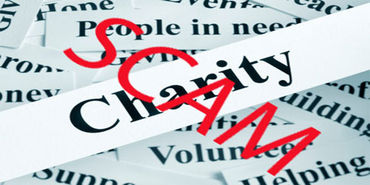Income Tax
IRS Warns of Fake Charity Scams Claiming to Help Orlando Mass Shooting Victims
The IRS is warning Americans about fake charity scams that are trying to use the mass shooting in Orlando as a way to raise money.
Jun. 21, 2016

The IRS is warning Americans about fake charity scams that are trying to use the mass shooting in Orlando as a way to raise money.
The agency says that consumers who wish to make donations to groups helping victims of last weekend’s terrible tragedy should follow a few simple steps to make sure their money goes to legitimate charities. IRS.gov has the tools taxpayers need to quickly and easily check out the status of charitable organizations.
While there has been an enormous wave of support across the country for the victims and families of Orlando, it is common for scam artists to take advantage of this generosity by impersonating charities to get money or private information from well-meaning taxpayers. Such fraudulent schemes may involve contact by telephone, social media, e-mail or in-person solicitations.
The IRS cautions donors to follow these tips:
- Be sure to donate to recognized charities.
- Be wary of charities with names that are similar to familiar or nationally known organizations. Some phony charities use names or websites that sound or look like those of respected, legitimate organizations. The IRS website at IRS.gov has a search feature, Exempt Organizations Select Check, through which people may find qualified charities; donations to these charities may be tax-deductible.
- Don’t give out personal financial information — such as Social Security numbers or credit card and bank account numbers and passwords — to anyone who solicits a contribution. Scam artists may use this information to steal a donor’s identity and money.
- Don’t give or send cash. For security and tax record purposes, contribute by check or credit card or another way that provides documentation of the gift.
- Consult IRS Publication 526, Charitable Contributions, available on IRS.gov. This free booklet describes the tax rules that apply to making tax-deductible donations. Among other things, it also provides complete details on what records to keep.
Bogus websites may solicit funds for victims of this tragedy. These sites frequently mimic the sites of, or use names similar to, legitimate charities, or claim to be affiliated with legitimate charities in order to persuade people to send money or provide personal financial information that can be used to steal identities or financial resources.
Additionally, scammers often send emails that steer recipients to bogus websites that appear to be affiliated with legitimate charitable causes.
Taxpayers suspecting fraud by email should visit IRS.gov and search for the keywords “Report Phishing.”
